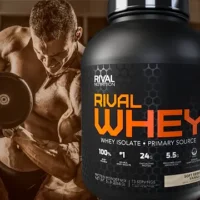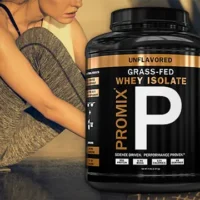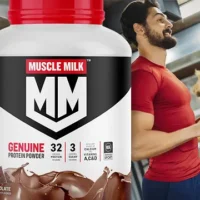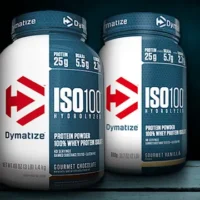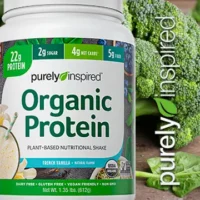BACK
Super-charge your protein absorption
While there’s lots of talk about eating enough protein, it’s also important to ensure you’re digesting and absorbing it properly!
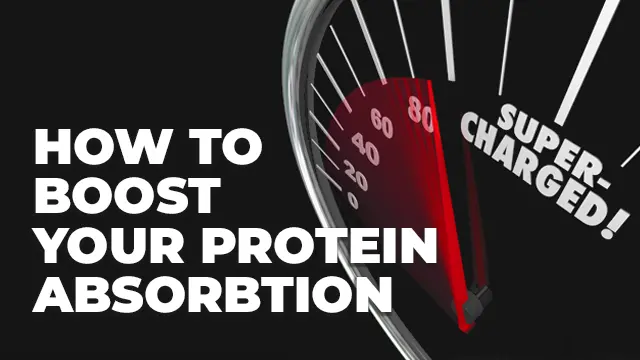
Well-digested protein usually means it’s better absorbed so that the body can utilize those amino acids to their full effect. This is especially important for “hard gainers”, bodybuilders, and other athletes, who generally have a higher requirement for protein.
HOW IS PROTEIN DIGESTED?
Protein as its found in food can’t be absorbed and needs to be broken down into smaller molecules known as amino acids. This process begins in the mouth, where our teeth chomp down on food, mashing it up, ready for the stomach to take over.
In the stomach, hydrochloric acid and pepsin help to chemically break down the protein into smaller chains, which can be easily dismantled in the intestine.
Lower down in the small intestine, special enzymes break down these protein chains into amino acids and units known as dipeptides and tripeptides. These enzymes are produced by the pancreas, the same organ which produces insulin and regulates your blood sugar levels.
Specialized proteins act as pick-up trucks that move the amino acids, dipeptides, and tripeptides into the mucosal cells of the intestine. The peptides are broken down further into single amino acids, where they’re taken on a journey through the bloodstream and into the liver.
In the stomach, hydrochloric acid and pepsin help to chemically break down the protein into smaller chains, which can be easily dismantled in the intestine.
Lower down in the small intestine, special enzymes break down these protein chains into amino acids and units known as dipeptides and tripeptides. These enzymes are produced by the pancreas, the same organ which produces insulin and regulates your blood sugar levels.
Specialized proteins act as pick-up trucks that move the amino acids, dipeptides, and tripeptides into the mucosal cells of the intestine. The peptides are broken down further into single amino acids, where they’re taken on a journey through the bloodstream and into the liver.
WHAT HAPPENS NEXT?
The body is very adept at storing amino acids and building different types of proteins. Think of it as an automated Lego set, where every piece is available and they body puts together different structures depending on what it needs most.
As long as you have access to a range of different amino acids, your body will deal with them as they’re needed. So, if you’ve just gone for a long run or a super intense workout, one of the priorities will be rebuilding muscle.
As long as you have access to a range of different amino acids, your body will deal with them as they’re needed. So, if you’ve just gone for a long run or a super intense workout, one of the priorities will be rebuilding muscle.
HOW CAN I MAXIMIZE MY PROTEIN INTAKE?
Ensuring your digestive system is in top shape can make a huge difference to your muscle repair and gains.
The obvious starting point is to chew your food well, as this makes things a whole lot easier for the stomach. Chewing also signals your body to release pepsin and hydrochloric acid, getting your stomach ready for the job ahead. People taking antacid medication should be extra aware, as lower levels of stomach acid will reduce their ability to break down large protein molecules.
Bitter foods like dandelion root or chamomile can help with protein digestion, along with lemon, pineapple, papaya, and watercress. Digestive enzymes can also help the process and can really help people who experience bloating and gas after taking protein supplements.
The process of digesting protein requires quite a lot of water, so it’s important to stay well-hydrated throughout the day. Coffee or high-energy drinks can actually have a dehydrating effect, so make sure you get extra water in to offset that.
There are several enzymes needed to assist with protein absorption, and they also rely on other nutrients. B vitamins, especially B6 can help quite a lot, along with digestive enzymes.
There are lots of external factors which have an effect on the digestive system, including stress, diabetes, high levels of exercise, coeliac disease or other gut diseases, and certain medications. If you suspect you’re someone who needs a little extra help with digestion, it’s worth seeing a health professional to see what your options are.
Consider simple actions like meditation, rest days from exercise, and increasing the amount of water you drink. It might sound silly, but never underestimate the power of a healthy digestive system!
The obvious starting point is to chew your food well, as this makes things a whole lot easier for the stomach. Chewing also signals your body to release pepsin and hydrochloric acid, getting your stomach ready for the job ahead. People taking antacid medication should be extra aware, as lower levels of stomach acid will reduce their ability to break down large protein molecules.
Bitter foods like dandelion root or chamomile can help with protein digestion, along with lemon, pineapple, papaya, and watercress. Digestive enzymes can also help the process and can really help people who experience bloating and gas after taking protein supplements.
The process of digesting protein requires quite a lot of water, so it’s important to stay well-hydrated throughout the day. Coffee or high-energy drinks can actually have a dehydrating effect, so make sure you get extra water in to offset that.
There are several enzymes needed to assist with protein absorption, and they also rely on other nutrients. B vitamins, especially B6 can help quite a lot, along with digestive enzymes.
There are lots of external factors which have an effect on the digestive system, including stress, diabetes, high levels of exercise, coeliac disease or other gut diseases, and certain medications. If you suspect you’re someone who needs a little extra help with digestion, it’s worth seeing a health professional to see what your options are.
Consider simple actions like meditation, rest days from exercise, and increasing the amount of water you drink. It might sound silly, but never underestimate the power of a healthy digestive system!
Popular Reviews
The content on this site has not been written, reviewed or endorsed by a medical professional. We assume no liability for the misuse of supplements and recommend you review the label of any product, as well as consulting with your health care professional.
We are a participant in the Amazon Services LLC Associates Program, an affiliate advertising program designed to provide a means for us to earn fees by linking to Amazon.com and affiliated sites.
We are a participant in the Amazon Services LLC Associates Program, an affiliate advertising program designed to provide a means for us to earn fees by linking to Amazon.com and affiliated sites.
© 2025 ProteinPowder.com
